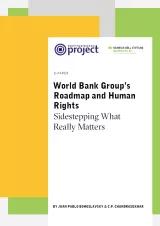Global Development Policy
Dossiers
Articles
Show more articles about Global Development Policy (97)
Publications
Show more publications about Global Development Policy (130)
more pages about Global Development Policy
Show more Landingpages about Global Development Policy (13)
© Heinrich-Böll-Stiftung e.V.
Schumannstraße 8
10117 Berlin
T +49 (30) 285 34-0
F +49 (30) 285 34-109
www.boell.de
info@boell.de




























